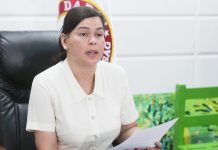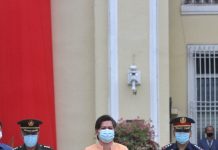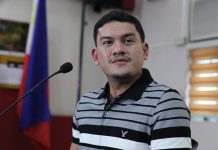Non-government organizations involved in the campaign against aerial spraying in the banana plantations and may be getting foreign funding in the process are reportedly not listed in the rooster of accredited NGOs in the country.
This was the claim of Renato F. Bangoy, chairman of the 911 Save Our Sanginan group, who said that not one of the NGOs is registered in the list of accredited groups in the website of the Philippine Council for NGO Certification (www.pcnc.com.ph),the accrediting body.
Bangoy said the accreditation of the council is important because it is the basis for the granting of tax exemption by the Bureau of Internal Revenue and any group trying to secure it needs two years to get the grant.
A voluntary organization, the council functions “to certify non-profit organizations that meet established minimum criteria for financial management and accountability in the service to underprivileged Filipinos,” its website said.
Among its members are the Association of Foundations, the Bishops-Businessmen’s Conference for Human Development, the Caucus of Development NGO Networks, the League of Corporate Foundations and the Philippine Business for Social Progress.
Bangoy said the latest revelation lends credence to the charge of banana growers and farmers that those behind the campaign to stop aerial spraying were not even legitimate groups and were only after securing funding from international organizations that were ready to support their causes even when this would mean deprivation of livelihood for about 500,000 workers of the industry, excluding those who were earning out of related activities.
He said the Bureau of Internal Revenue should look into this matter, as this controversial sector might turn out to be a gold mine of taxes that might help the agency attain its collections target.
Another earlier finding, Bangoy said, indicated that most of the funds for the campaign against aerial spraying comes from The Netherlands, which ironically is the country identified to be one of the sources of chemicals used in spraying. He said one of the biggest producers of agricultural chemicals used for spraying is based in The Netherlands.
Earlier, the banana groups alleged that the campaign was aimed at killing the industry in the country so that foreign companies will be able to corner the market, including the Japanese market where the bulk of the bananas from the Davao Region is sold. [PR]
Several NGOs in the city have been actively campaigning against aerial spraying, among them the Interface Development Interventions (IDIS) and the Sustainable Integrated Area Development in Mindanao Convergence for Asset Reform and Regional Development. Under the IDIS structure is the Mamamayan Ayaw sa Aerial Spraying.
The campaign is headed by the Pesticide Action Network (PAN), an international group whose advocacy is to ban chemicals even if these are approved for use by government agencies of countries around the world.
It was Dr. Romeo Quijano of PAN who first started the campaign against aerial spraying when he came out with a story that a village he called as Kamukhaan in Hagonoy, Davao del Sur had residents who were suffering from illnesses brought about by aerial spraying.
Quijano even brought one resident, Ramil Murillo of the village, to New Zealand to strengthen his case against the farm practice as Murillo’s wound, according to him, was caused by aerial spraying. It turned out, however, that Murillo was suffering from the tuberculosis of the bone.
Quijano’s report eventually led the Department of Health to sponsor a study in 2006 on Camocaan (the real name of the place) which also recommended the banning of aerial spraying.
With the controversial study on hand, then Health Secretary Francisco T. Duque III came up with a recommendation to the Agriculture department to ban the farm practice. Duque’s recommendation came out even when the peer reviews of the World Health Organization and the University of the Philippines-Manila questioned both the way the study was conducted and its results. (With PR)
0 Comments
Oldest






